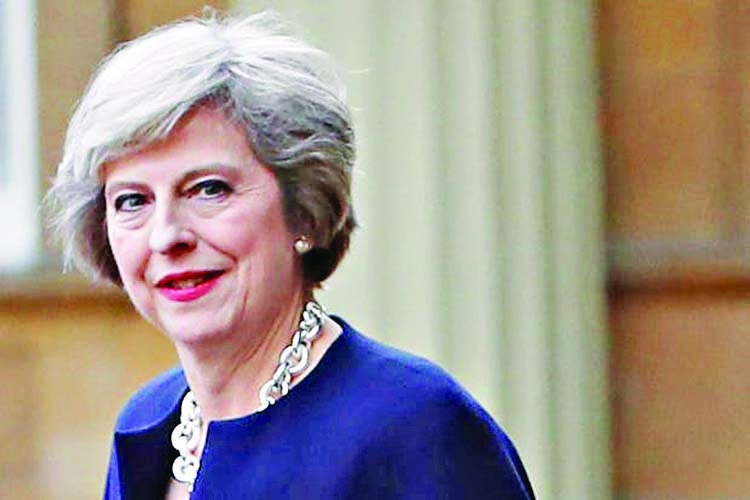May ponders 4th bid to pass Brexit deal

Theresa May and her cabinet are looking for ways to bring her EU withdrawal agreement back to the Commons for a fourth attempt at winning MPs' backing.The PM said the UK would need "an alternative way forward" after her plan was defeated by 58 votes on Friday. MPs from all parties will test support for other options during a second round of "indicative votes" on Monday.
However, Conservative Party chairman Brandon Lewis said the government did not support any of those options. Labour leader Jeremy Corbyn has called on Mrs May to change her deal or resign immediately, while Northern Ireland's DUP - which has propped up Mrs May's minority government - also continues to oppose the deal.
The government has so far failed to win over 34 Conservative rebels, including both Remainers as well as Tory Brexiteers, who say the deal still leaves the UK too closely aligned to Europe. But a No 10 source indicated the prime minister would continue to seek support in the Commons.They insisted efforts were "going in the right direction", given the margin of defeat was down from 149 a fortnight ago. MPs will hold another set of votes on various Brexit options in the Commons on Monday.
Lewis told Radio 4's Today program: "The government's position is very clear - we do not support these options. The government's position is we believe the best way to respect the referendum is to deliver the deal." He said one of the voting options put forward, which supports staying in a customs union with the EU, would go against the result of the referendum and the Conservatives' election manifesto.
The customs union allows businesses to move goods around the EU without checks or charges. Continued membership would bar the UK from striking independent trade deals after Brexit.Nicky Morgan, a former cabinet minister and fellow Tory MP, said there may need to be a government of national unity to end the deadlock over Brexit.
She told Today: "It may well be that if you end up with a cross-party approach to finding a majority in the House of Commons, it might be that you need a cross-party approach to implementing it."There have been periods in our history when we have had national unity governments or a coalition for a very specific issue." There is every chance that the prime minister will again - with routes outside the normal boundaries - try to make a version of her Brexit deal the end result of all of this.
Despite a third defeat, despite the embarrassment of repeated losses, don't imagine that she is ready to say a permanent farewell to the compromise deal she brokered with the EU or, straightaway, to her time in office. There is still a belief in the heart of government that there could be a way round, perhaps to include the prime minister's agreed treaty as one of the options that is subject to a series of votes that will be put in front of the Commons next week.
The aspiration, strange as it sounds, for some time now has been to prove to MPs that the deal is the least worst of all the options... May has until 12 April to seek a longer extension to the negotiation process to avoid the UK leaving without a deal - which most MPs believe could harm business and create disruption at ports.
However, she said any further delay to Brexit was "almost certain" to involve staging elections to the European Parliament in May. Downing Street later said this was not an "inevitability".Meanwhile, Leave voters registered their anger at the latest rejection, on the day the UK was originally scheduled to leave the EU. Thousands gathered outside Parliament to protest against the delay, bringing traffic to a standstill.
And the Conservative former Attorney General Dominic Grieve, who has campaigned for a further referendum on the deal, is facing de selection after losing a vote of no-confidence in his Beaconsfield constituency. The prominent Remainer, who remains an MP for the time being, clashed with his local Conservative Party over Brexit.
